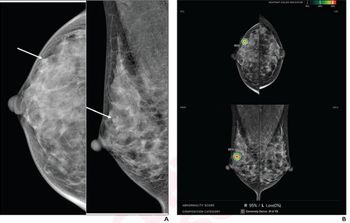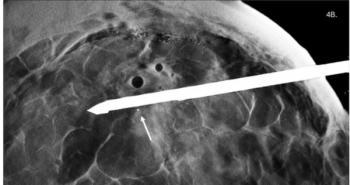
FDA Clears New AI Software for MRI Detection of Prostate Cancer
The ProstatID, an adjunctive artificial intelligence software that radiologists can utilize with traditional magnetic resonance imaging (MRI), reportedly measures prostate gland volume, and suggests PI-RADS scoring of suspicious lesions.
An emerging artificial intelligence (AI) software program that may enhance the efficiency and accuracy of prostate cancer diagnosis has received
Through computer-aided detection (CAD), ProstatID™ (Bot Image) offers a colorized translucent overlay of two-dimensional axial T2 magnetic resonance imaging (MRI) to identify soft tissue lesions that may warrant closer inspection for potential malignancy. The ProstatID algorithm also utilizes the Prostate Imaging Reporting and Data System (PI-RADS) to score the cancer probability of suspicious lesions, according to Bot Image. The company noted that two internal studies showed improved accuracy and a reduced false positive rate with the use of ProstatID.
While other technologies have enhanced formatting and segmentation of MRI images of the prostate, Bot Image said ProstatID is a significant advance for the diagnosis of prostate cancer.
“Prostate cancer screening and detection methods adoption (have) changed little over the past 30 years despite the mountain of evidence pointing to the efficacy of superior technologies and the futility of the old methods,” noted Bot Image founder and CEO Randall W. Jones, Ph.D. “Sadly, this has resulted in the unnecessary and premature deaths of countless numbers of men in the (United States) alone. ProstatID represents an exciting step in the fight to save lives.”
Bot Image noted that ProstatID is available to radiologists as a software as a service (SaaS) tool, which provides secure, HIPAA compliant connectivity between a cloud-based ProstatID server and a facility’s radiology department server.
Newsletter
Stay at the forefront of radiology with the Diagnostic Imaging newsletter, delivering the latest news, clinical insights, and imaging advancements for today’s radiologists.














